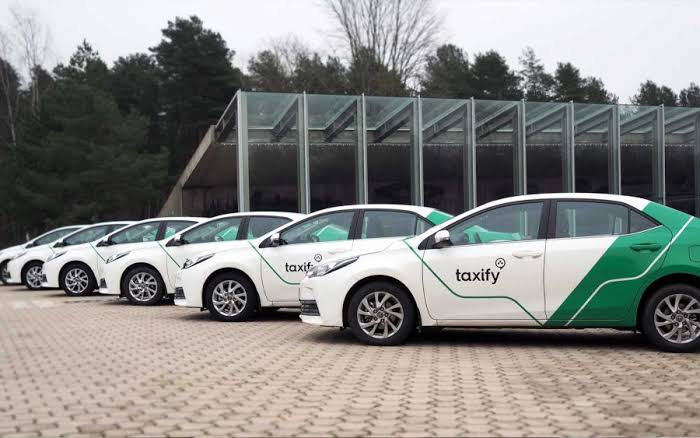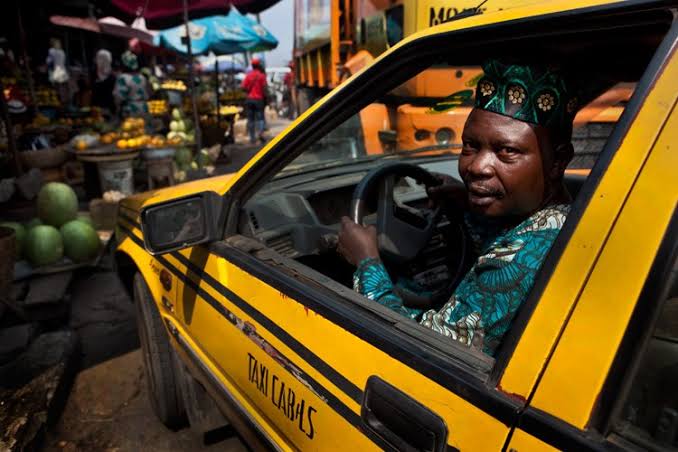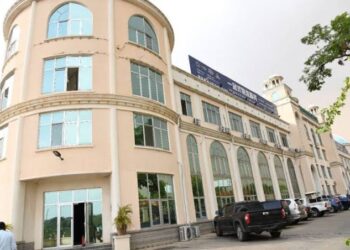The motor park is littered with empty bottled water and sachet water bag whose content has been exhausted, across the park where an abandon sedan is parked lies a heap of refuse; a testament to the indiscriminate dumping of waste that has become synonymous with the country’s commercial center — Lagos. There is an almond tree whose enormous branches and leaves are, though withered due to scorching Lagos sun, enough to provide shelter for the taxi drivers from harsh weather when they are not driving around the city, conveying passengers from one place to another.
Matthew Aderibigbe is a man in his early 50’s. Sitting on a wooden bench that’s propped against the trunk of the almond tree for balance, he looks forlorn and hapless. He was waiting for the passengers that may never come so he could make ends meet and fend for his family.
Aderibigbe is one of the many conventional taxi drivers whose source of livelihood faces extinction because of the brutal incursion of technology into the lucrative transport sector. The advent of ride hailing companies like Uber and taxify has dealt a fatal blow to Aderibigbe and his colleagues, who operate the old fashioned cab business arrangement of waiting for passengers at a designated motor park or driving around town to pick them.

Mr Aderibigbe lamented the huge negative discrepancy in revenue that the arrival of technology in transport sector had on them, and the accompanying hardship it had engendered for them.
“Before now I make between N5000 to N7000 in a day, but since the arrival of Uber and taxify things have never been the way the way they used to be. These days you will be lucky to get N2000 in a day,” Aderibigbe said.
“Its been tough and difficult, our customers now see Uber and taxify as the one stop shop for their transport needs,” Kazeem olawoyin told me. “It is taking a terrible toll on us and our family because we can’t cater for them the way we would like to. This has put a strain on our relationship with our family members. How are we supposed to be accorded the respect we deserve if we can’t fend for them?”
Olawoyin, however, said he would have liked to join one of the ride hailing companies but he does not have the financial capability, which would include buying a new car, because the car he currently uses may not pass the procedural test of the companies, and even if it does, the yellow and black stripes which is the colour of commercial vehicle in Lagos will have to be erased.
Kazeem and Aderibigbe’s predicament is a reflection of the plight of most drivers of the conventional taxi whose source of livelihood is now at the mercy of the disruptive element – technology.















